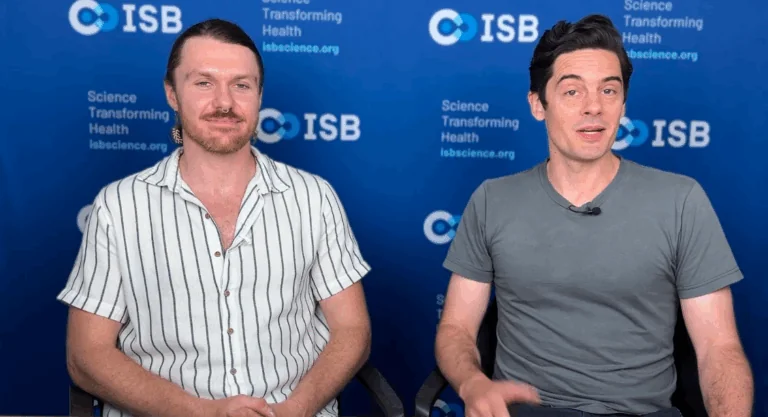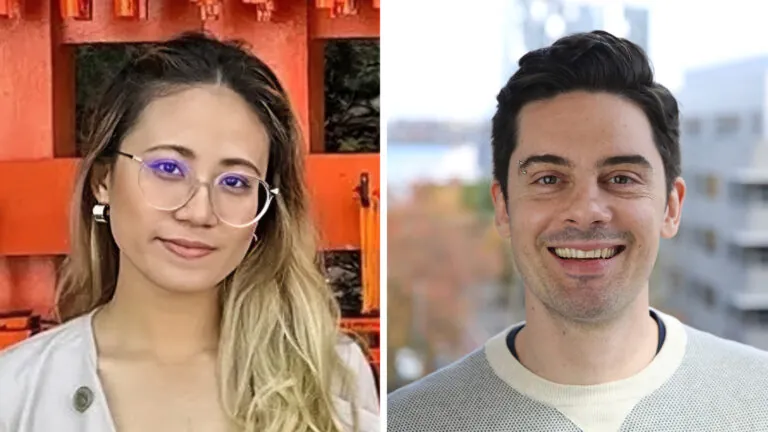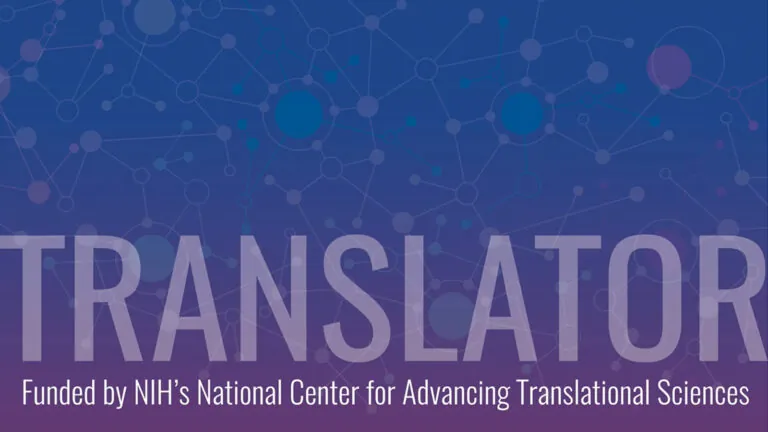Dr. Anna Kuchina Joins ISB as Assistant Professor
Dr. Anna Kuchina has joined ISB as assistant professor, and is our newest faculty member. Kuchina comes to ISB after completing her postdoctoral training in the Seelig Lab at the University of Washington. In this Q&A, we delve into Kuchina’s research career to date, her research areas of interest, and much more.

Dr. Anna Kuchina has joined Institute for Systems Biology (ISB) as assistant professor, and is our newest faculty member. Kuchina comes to ISB after completing her postdoctoral training in the Seelig Lab at the University of Washington.
Following is a Q&A with Kuchina that delves into her research career to date, her research areas of interest, and much more.
ISB: Welcome to ISB, and congratulations on your assistant professor faculty position. What does this appointment mean to you?
Anna Kuchina: Leading a lab has been a longtime aspiration for me throughout my research career. I first discovered systems biology as a graduate student when I joined the Gurol Suel Lab, which was part of the Green Center for Systems Biology at UT Southwestern. Prior to that, I was finding it difficult to choose a research area because, in my opinion, pretty much everything was fascinating! The systems biology approach allowed me to tackle much higher level, conceptual questions not limited to any one area of biology, such as the strategies for cellular decision-making and the role of single-cell dynamics in differentiation. Because of my physical sciences background, I am driven to understand the design principles and the behavior of living systems in a quantitative manner. I am particularly honored by this opportunity to join the original systems biology institute where I can work with like-minded scientists across scientific boundaries.
ISB: What is involved in starting the Kuchina Lab, and what research project are you most excited to get started on?
Kuchina: I am particularly looking forward to applying the bacterial single-cell sequencing technology beyond the simple model organisms to gain insight into the behavior of individual microorganisms in various contexts relevant to human health. I also have a strong interest in bacterial spatial self-organization stemming from my graduate lab research on biofilm development, which is why I’m looking forward to analyzing the multi-species biofilm formation with single-cell resolution. I also have a fascination with the topic of gene expression heterogeneity, or noise, and whether there are scenarios where having more noise in the system serves a biological function. I am starting to think of host-pathogen interactions through this lens, where the interaction between a particular subset of noisy cells creates and amplifies the heterogeneity in the outcomes of this interaction. And of course we then need very high throughput, single-cell methods to disentangle the effects of individual phenotypes.
ISB: How do you describe your work to non-scientists? `
Kuchina: I think most non-scientists tend to think of bacteria of the same species as simplistic, fully identical bugs who also behave identically. Yet, like in any community, it is beneficial for its members to be functionally diverse: In our own society, we prosper because we have developed all manners of specialization and labor division. I study how even the genetically similar bacteria employ essentially the same principles of diversification and specialization to gain advantage on us during an infection, or build complex communities resistant to challenges from the outside environment.
ISB: You earned your bachelor’s and master’s degrees from the Moscow Institute of Physics and Technology before heading to the University of Texas Southwestern Medical Center to complete your PhD, and then you moved north to Washington to complete your postdoctoral fellowship (and, now, for your faculty position at ISB). How would you describe your academic experiences in three disparate places like Moscow, Texas and Seattle?
Kuchina: I feel very grateful that I had an opportunity to experience the research culture at these very different places. When I was working on my master’s project, the laboratories were maintained as permanent units of the institution, while the leadership of the lab was passed on from one scientist to another. There, I was trained in essential laboratory skills and practices from very experienced senior research scientists. Meanwhile, being a graduate student at UT Southwestern was my first experience both living abroad and working in an American lab which is essentially defined by the individual PI and their vision. I loved the multicultural experience of having classmates and lab mates from all over the world and the ease with which we all found common ground. Seattle’s research culture, on the other hand, is unique because of the strong innovation drive and biotech presence. Here, research breakthroughs originating from the bench are commonly translated into technologies and treatments, quite frequently by the academic inventors themselves, which creates a unique richness of opportunities and a fast pace of development for promising ideas.
ISB: How do you think the research landscape might change in the next 10 years?
Kuchina: I hope, of course, that the microbiology and the microbiome fields will increasingly adopt the newest cutting-edge technologies emerging from the rest of the scientific fields. As a more high-level vision, I hope we find a way to routinely substitute at least a part of our actual physical experiments with digital simulations, as they steadily become better. I also envision some sort of a transition where we move beyond accumulating a great deal of disparate data and learn how to better synthesize it into knowledge and insight. I hope I can be a part of this during my time at ISB.
ISB: What do you do when you’re not in the lab?
Kuchina: I’m probably taking care of my two young kiddos or running around Lake Union. I don’t always have time to train for a long distance but I would love to return to marathon running in the future. I also like hiking and just being outside. I think the Pacific Northwest is one of the most beautiful places on the planet.
ISB: What is the last book you read? What is the last movie you watched?
Kuchina: The latest book that I’ve read was “Exercised: Why Something We Never Evolved to Do Is Healthy and Rewarding” by Daniel Lieberman, a professor in the Department of Human Evolutionary Biology at Harvard University. I find the field of paleoanthropology fascinating, and the topic of being physically active is something I’m very curious about. Before that, I read and tremendously enjoyed “The Better Angels of Our Nature,” the famous book by Steven Pinker which argues that the violence in the modern world is declining, and provides reasons for it. The last movie I watched (and the 50 before that) was “Frozen.” Did I mention I have a 5-year-old?
ISB: Any hidden skills or talents you want to share?
Kuchina: I have been drawing and painting as a hobby since I was little, which is something I share with my father. I like to casually try my hand at a variety of arts from watercolors to cartoons to sumi-e or Japanese brush painting. I also like photography, especially macro and wildlife. Even in science, I have always been attracted to microscopy because of my love for the visual arts.
To learn more about Dr. Anna Kuchina and the Kuchina Lab, please check out her biography and lab overview page.


